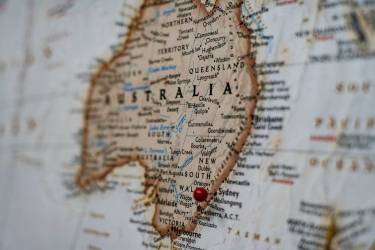Summary:
- Reserve Bank of Australia cuts its main rate to 1%, as expected, more rate reductions could be on the cards if economic growth does not improve
- Australian government is getting closer to a 158 billion AUD fiscal package
- The US has proposed more tariffs on EU goods amid Airbus-Boeing conflict
RBA cuts rates
In line with expectations the Reserve Bank of Australia decided to cut its main rate by 25 basis points to 1%, the lowest level on record. Due to the fact that the move had been fully priced in, the Aussie dollar did not decline substantially right after the decision. What’s more, it is the best performing major currency this morning being 0.2% up against the greenback. In its communique the RBA underlined that a cut would help achieve progress towards the inflation target, support the labour market and reduce spare capacity in the economy. The bank reiterated that inflation pressures were subdued across the economy, seeing underlying price growth at 2% in 2020. It also signalled higher price growth over the second half of the year mainly due to petrol prices. Keep in mind that exogenous factors like fuels should not affect monetary policy there unless they cause so-called second round effects. Therefore, one needs to be geared up for more rate cuts should the Australian economy accelerate. In terms of the exchange-rate the bank noted that its remained at the lower end of a narrow range. Thus, if the Antipodean economy does not improve and we are not delivered a de-escalation of the US-China trade spat, one may expect another rate cut by the year-end.
Australian govt may boost the economy
The above-mentioned story and further steps in monetary policy in Australia might depend to a large extent on what happens in fiscal policy there. Let us recall that central banks have played a major role over the recent years, however, they cannot stimulate the global economy indefinitely. Thus, one should be surprised by lots of comments from those central banks that fiscal policy needs to step in as well. These requests seem to be heard by the Australian government which is getting closer to agree to a fiscal package worth 158 billion AUD over the next decade (more than 8% of GDP). A relief would be delivered by tax cuts and be primarily aimed at middle-income earners. To become law, it still needs the support of three independents and minor parties after the main opposition Labour Party suggested it would vote against the legislation, as Reuters reports. Australia-based economists have estimated that these tax breaks would add roughly 7.5 billion AUD into the economy over this and the following year. Once these changes are implemented, they might affect the current stance of the RBA.
 The AUDUSD reversed sharply on Monday on the back of a widespread rally in the US dollar. The pair bounced off the important resistance placed nearby 0.7020 which could still be a crucial level to watch for technicians. Source: xStation5
The AUDUSD reversed sharply on Monday on the back of a widespread rally in the US dollar. The pair bounced off the important resistance placed nearby 0.7020 which could still be a crucial level to watch for technicians. Source: xStation5
More tariffs on EU products
On Monday, the US Trade Representative issued a supplemental list of goods that could be potentially burdened with duties amid the ongoing spat between Airbus and Boeing. The list consists of goods worth $4 billion including meat, cheese, olives or pipes. Let us remind that in April the US published a list of EU products worth $21 billion. These possible duties proposed by the US are a retaliatory step for illegal subsidies to Airbus. The subsidies to the European air carrier have caused approximately $11 billion in economic harm to the US per year, according to the USTR estimates. Markets did not respond to this report - Wall Street was able to bring its gains to the end of trading, while indices in Asia have been quite flat except the Hang Seng being up 1.1% at the time of writing.
 The Hang Seng is moving up on Tuesday being possibly still under the influence of the G20 summit taking place in Japan last weekend. Source: xStation5
The Hang Seng is moving up on Tuesday being possibly still under the influence of the G20 summit taking place in Japan last weekend. Source: xStation5
In the other news:
-
Chinese PM Li said that the country would not resort to yuan devaluation as a tool in the trade war with the US; the country would scrap ownership limits for securities, futures and life insurances companies by the end of 2020 (the initial plan suggested those limits could be scrapped by the end of 2021)
-
New Zealand’s building permits rose 13.2% MoM in May after falling 7.9% MoM in April
This content has been created by XTB S.A. This service is provided by XTB S.A., with its registered office in Warsaw, at Prosta 67, 00-838 Warsaw, Poland, entered in the register of entrepreneurs of the National Court Register (Krajowy Rejestr Sądowy) conducted by District Court for the Capital City of Warsaw, XII Commercial Division of the National Court Register under KRS number 0000217580, REGON number 015803782 and Tax Identification Number (NIP) 527-24-43-955, with the fully paid up share capital in the amount of PLN 5.869.181,75. XTB S.A. conducts brokerage activities on the basis of the license granted by Polish Securities and Exchange Commission on 8th November 2005 No. DDM-M-4021-57-1/2005 and is supervised by Polish Supervision Authority.


